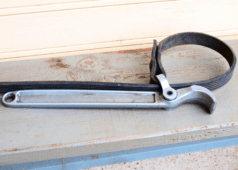The Craft and Commerce of Writing

I never set out to write a craft book–or, for that matter, to write business columns, or reference materials, or textbooks on teen sex and Chernobyl, or basically anything that’s paid the bills over the last five years. I’d written for years, but it had been an after-hours art: Essays about technology and sexuality and Detroit’s decay; stories about clockwork robots, haunted dogs, monster wives, and giant squid–the kind of stuff you gut out after dark; the kind of stuff you write for the consuming love of finding how to say it. The kind of stuff that’s hard to sell.
I’ve always been a crackerjack essayist (honest; I won prestigious awards and everything), but in school I was never advised to seriously pursue a career in writing. In academia, if you write well, your lettered mentors will all advise grad school, and then some more grad school. Some folks might suggest you become a journalist or novelist, but not because these are practical career choices; it’s just that when they think of writing, it’s Newsweek and Stieg Larsson that jump to mind. Since I was a practical boy, I opted for a career as a classroom teacher, despite a complete lack of qualifications (professional, psychological, or otherwise). It was a poor fit; my son was born in 2006, and I quit teaching.
When you spend all day with a baby, and every night worrying about the gap between what your wife earns and what your mortgage company wants, it becomes increasingly easy to look at any work–especially work you can do from home at night, or while your baby naps–with the enthusiasm of a slat-sided dog spying an abandoned sausage.
Decent paying journalism and fiction work are thin on the ground; even the scraps are highly contested. But there are scads of “niche” writing gigs hiding in the nooks and crannies: local weeklies, free alternative monthlies, alumni magazines, Naturopathic Health Today, Hemp Life, The Osceola County Jewish News, and so on. These don’t pay handsomely, but they pay fairly. Higher up the pay scale are all of the things that you never think of as having authors: Commercial web content, reference books, research databases, technical guides, textbooks, non-profit newsletters, annual reports, marketing materials. These need to be written by someone, and also need to be copyedited and proofread–work that most writers take to easily, since the sole requisite is a working familiarity with the Associated Press Stylebook, or Chicago Manual of Style, or Publication Manual of the American Psychological Association, and good ole Merriam-Webster’s Collegiate Dictionary (11th edition). And it’s all work that you can do while baby sleeps.
The folks charged with getting this material ready for the printer–the project managers and managing editors–are all writers like you. Getting this done is their day job; they want good writing, but are aware that they aren’t offering Michelangelo-rates. They don’t expect high art, just solid carpentry. If you do things well-enough and on time, they will come back to you over, and over, and over again: One article becomes two, then four, then a higher-rate piece that calls for a little panache. Copyediting becomes pitching an idea for a book, then writing that book, then another. You’re sewing sock squids, then revising drafts, then cashing checks, then signing books.
This isn’t the old after-hours keyboard pounding, isn’t the vague dream of being an author-on-the-side, but as you shift into writing as a daily paid craft–instead of writing as an occasional, mysterious art–you don’t just improve at finding the angle on a press release for a gourmet dog bakery; you also find it easier to write and clean up (and sell) those weird stories, the haunted dogs and lovelorn squids. Your writing gets lean and sturdy, as neatly framed as a stud wall.
And, incidentally, you’re making a living.
DAVID ERIK NELSON is the author of Snip, Burn, Solder, Shred: Seriously Geeky Stuff to Make with Your Kids. You can find his book in many actual bookstores, order online from Amazon (where it’s on backorder), or get a copy immediately from the publisher (No Starch Press: https://nostarch.com/snipburn.htm)–where you can use the coupon code “SHRED,” save 35%, and get the ebook editions for FREE!
The Kindle edition of his Nebula-nominated novella Tucker Teaches the Clockies to Copulate is now available for immediate purchase and download at Amazon.com
Find David online at davideriknelson.com, or as @SquiDaveo on Twitter.









